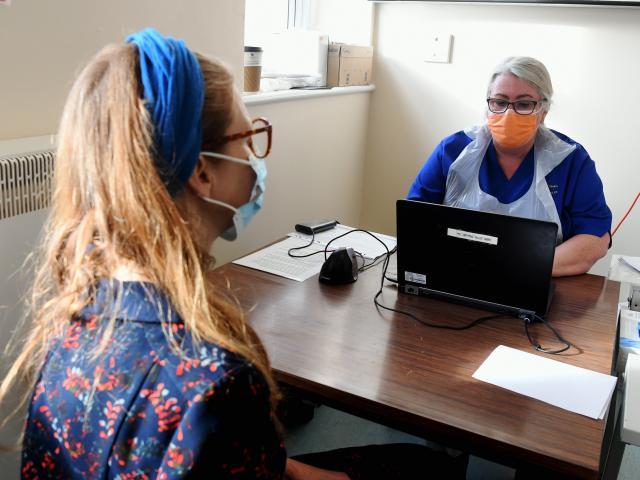
Volunteers in Wrexham needed for world-first COVID-19 vaccine booster study
28 May
Volunteers from within a 50-mile radius of Wrexham are now needed to take part in a new clinical trial to receive a third ‘booster’ COVID-19 vaccine.
Public Health Wales is recruiting over 30s who have had two doses of a COVID-19 vaccine to take part in this research study, including those immunised early in the vaccination programme. For example, adults aged 75 and over or health and care workers.
The COV-Boost study, which is being run at Wrexham Maelor Hospital, is taking place at 18 sites in the UK and will involve 2,886 volunteers.
The trial is looking at seven different COVID-19 vaccines as potential boosters, given at least 10 to 12 weeks after a second dose as part of the ongoing vaccination programme. Volunteers could receive a different brand to the one they were originally vaccinated with.
It is the first in the world to provide vital data on the impact of a third dose on patients’ immune responses. It will give scientists from around the world and the experts behind the UK’s COVID-19 vaccination programme a better idea of how effective a booster of each vaccine is in protecting people from the virus.
The study is looking to include people from a wide variety of backgrounds and those from ethnic minorities are encouraged to apply.
Anyone interested in finding out more and signing up can visit the study website: https://www.covboost.org.uk/participate-wrexham
Dr Orod Osanlou, Consultant Physician and Principal Investigator for Public Health Wales and the COV-Boost study said:
“While the current COVID-19 vaccines are highly effective at preventing severe disease, we just don’t know how long that immune protection from vaccination will last. It’s likely additional booster vaccinations might be needed for high risk groups after a period of time and that’s why we’re doing this research.
“We want to find out how effective a third jab can be in providing protection and how effective it is to give doses from different brands, to the ones people may have originally been vaccinated with.
“Thank you to the participants in Betsi Cadwaladr University Health Board who have volunteered in vaccine trials so far. I would urge anyone who may be interested in taking part and lives close to Wrexham Maelor Hospital to register with the COV-Boost website. This will help us deliver this next important phase of research, and continue to keep our most vulnerable family and friends protected.”
Richard Roberts, Head of the Vaccine Preventable Disease Programme (VPDP) at Public Health Wales, said:
“This vaccine study will be very helpful in developing future plans for the COVID-19 vaccination programme. Vaccine trials have been an instrumental component to the successful delivery of the COVID-19 vaccination programme so far, which has been estimated to have already saved the lives of more than 11,000 people in the UK already.
“We need further data to help us understand how long vaccine protection lasts, particularly as we move towards the autumn/winter months where we tend to see an increase in respiratory viruses. This vaccine study will also help us to understand how best to protect people now and in the future.
“All of this information will be vital to informing the future rollout of the COVID-19 vaccination programme in Wales.”
Dr Nicola Williams, Director of Support and Delivery at Health and Care Research Wales, said:
“We’re so grateful to those who have already taken part in vital COVID-19 research in Wales and helped in the UK-wide effort to tackle the pandemic.
“There are still many things we don’t know about COVID-19, or our immunity to it, and that’s why it’s essential we find out those answers through research like the COV-Boost study.”